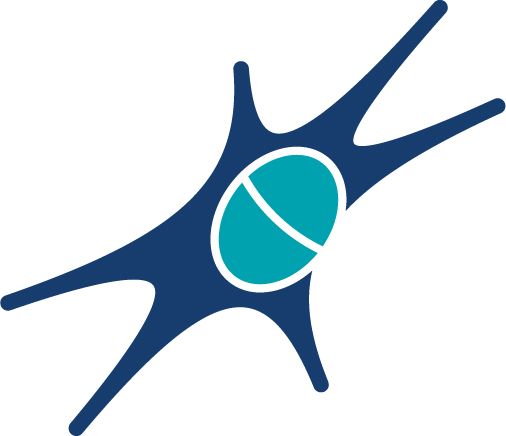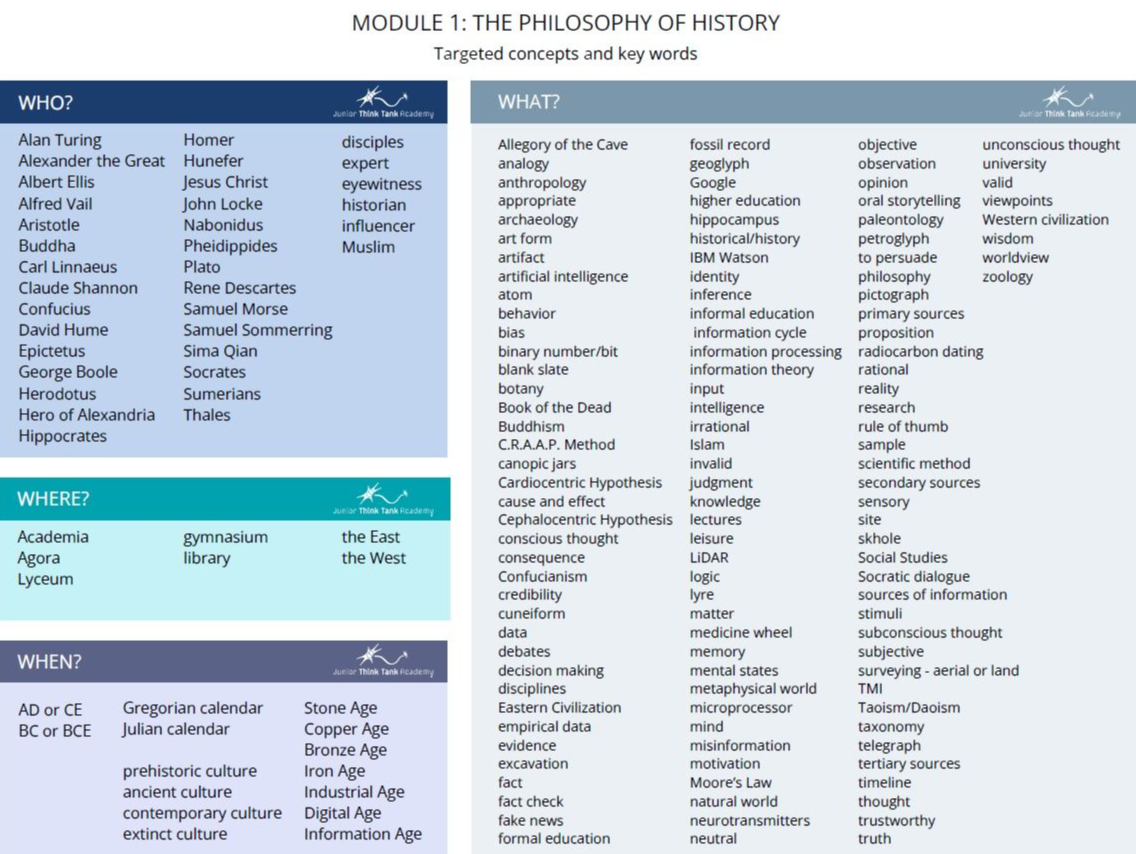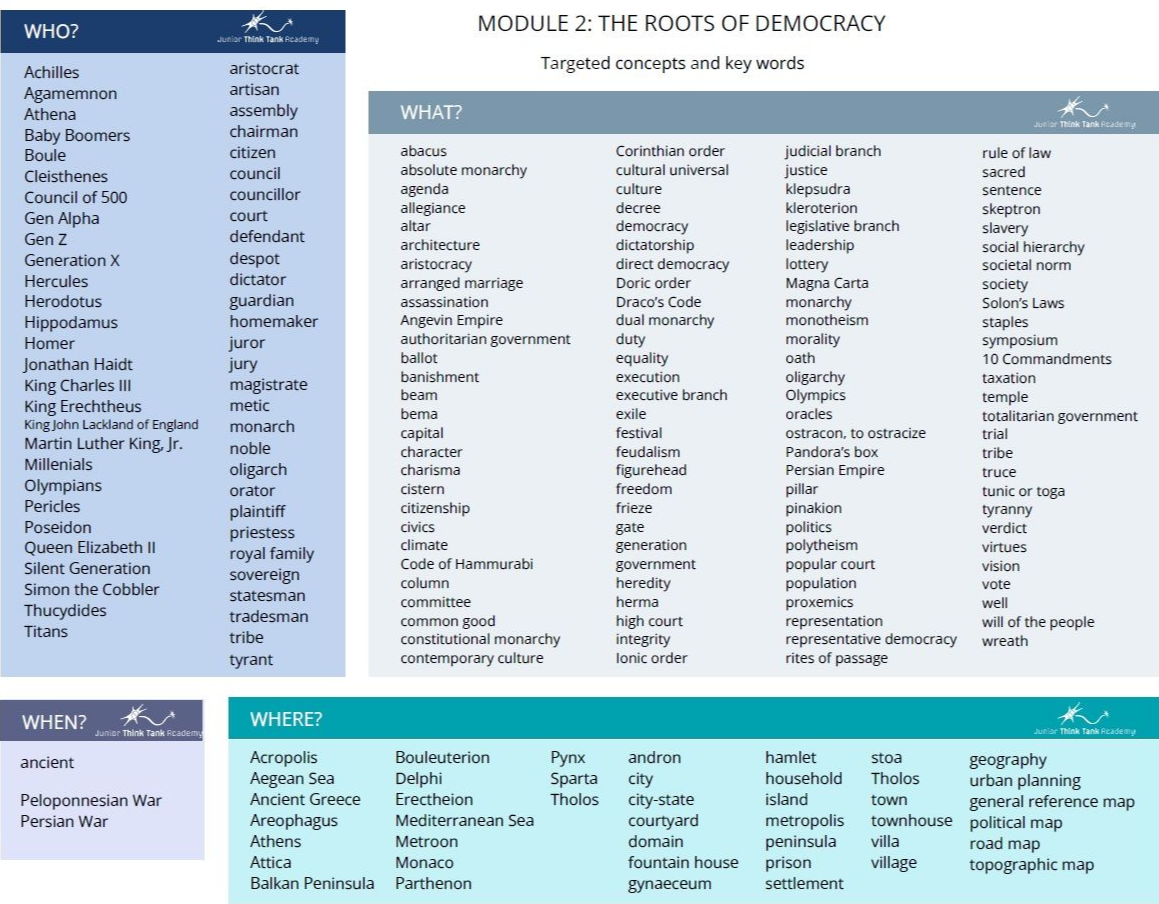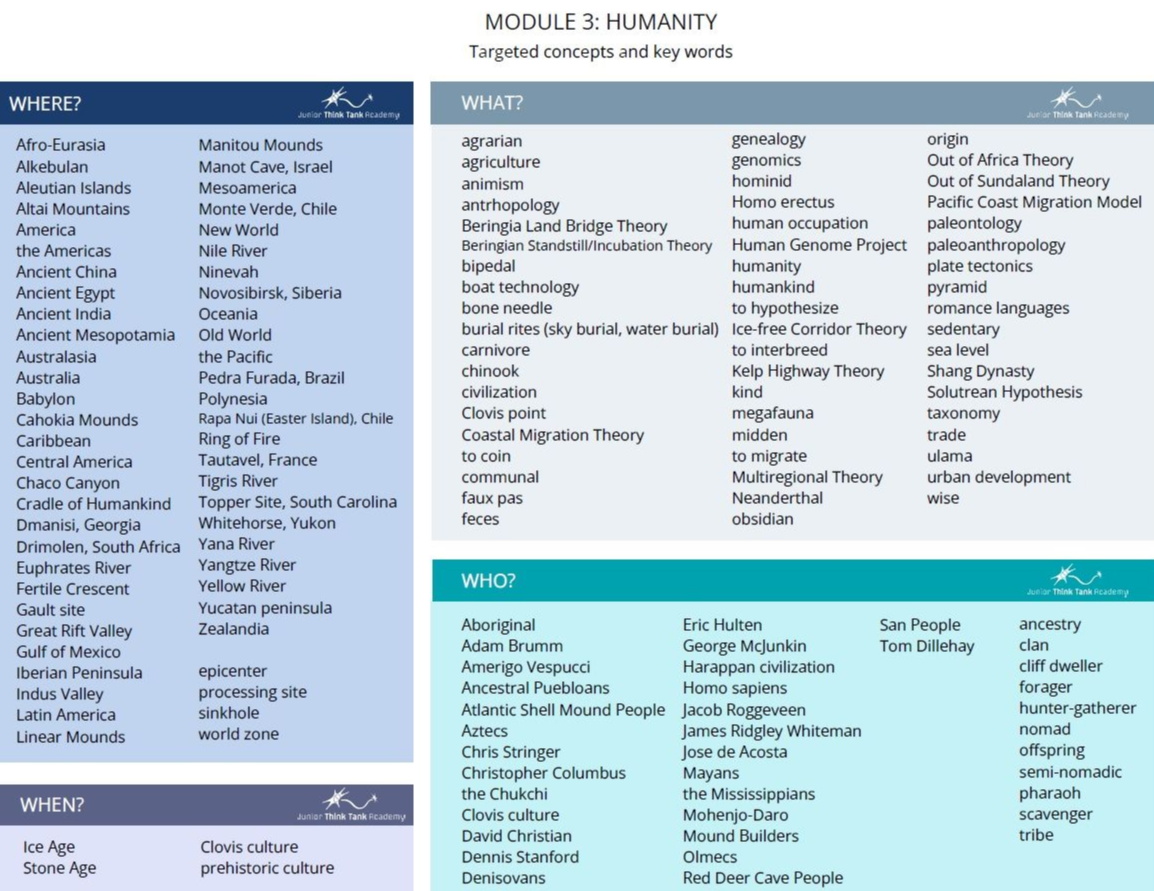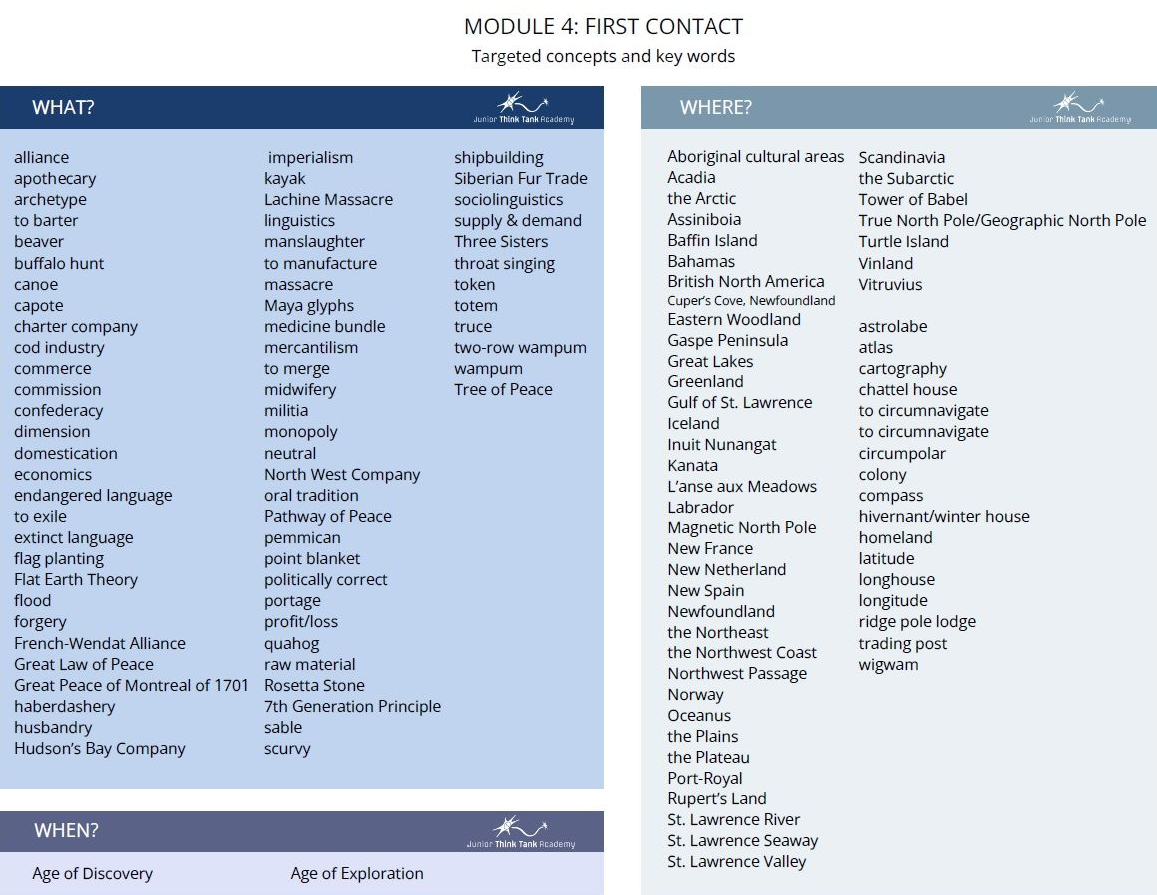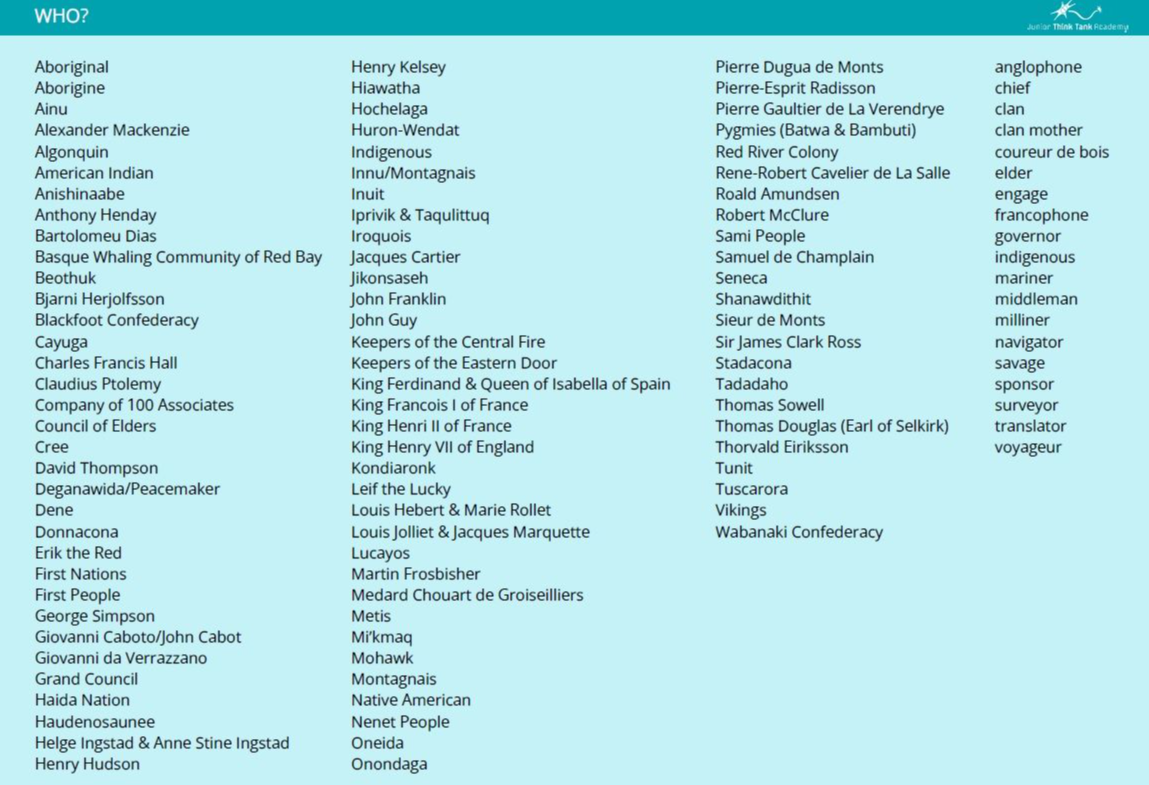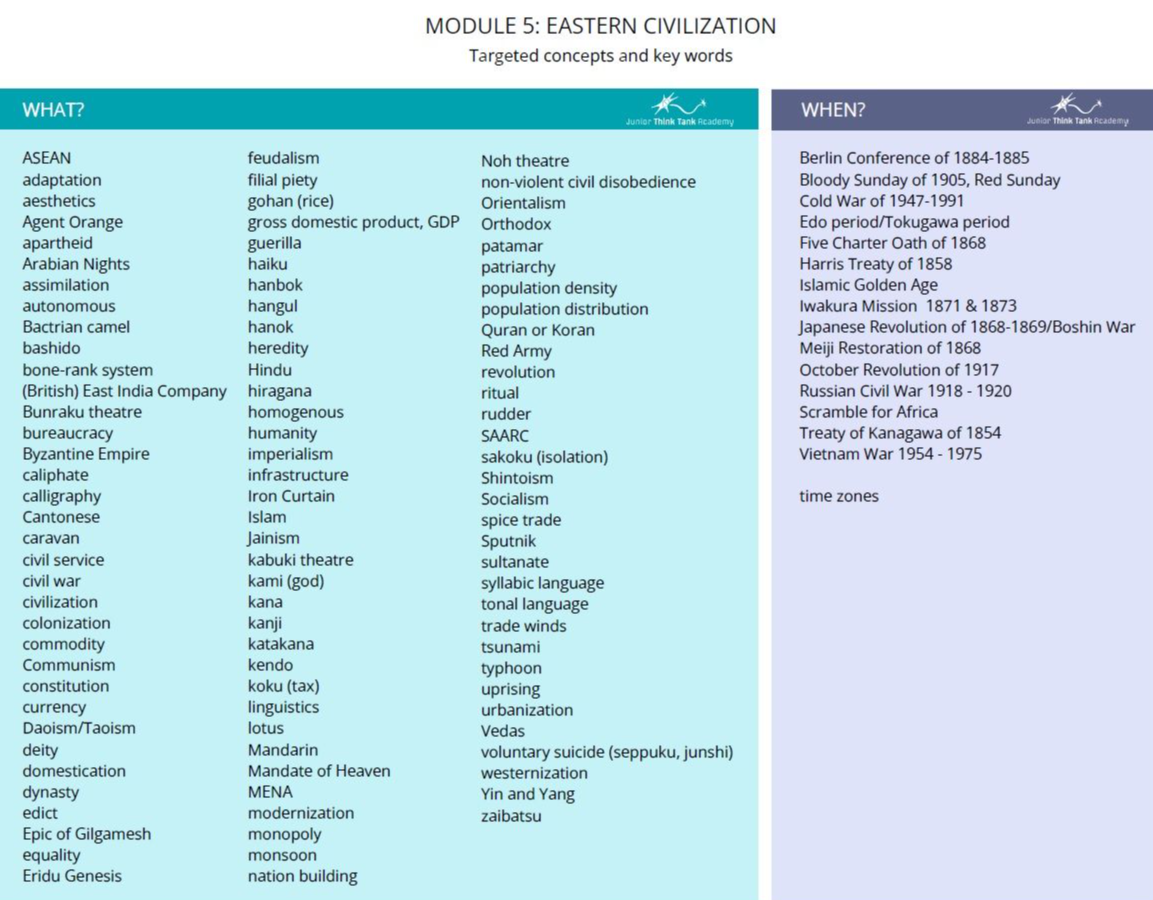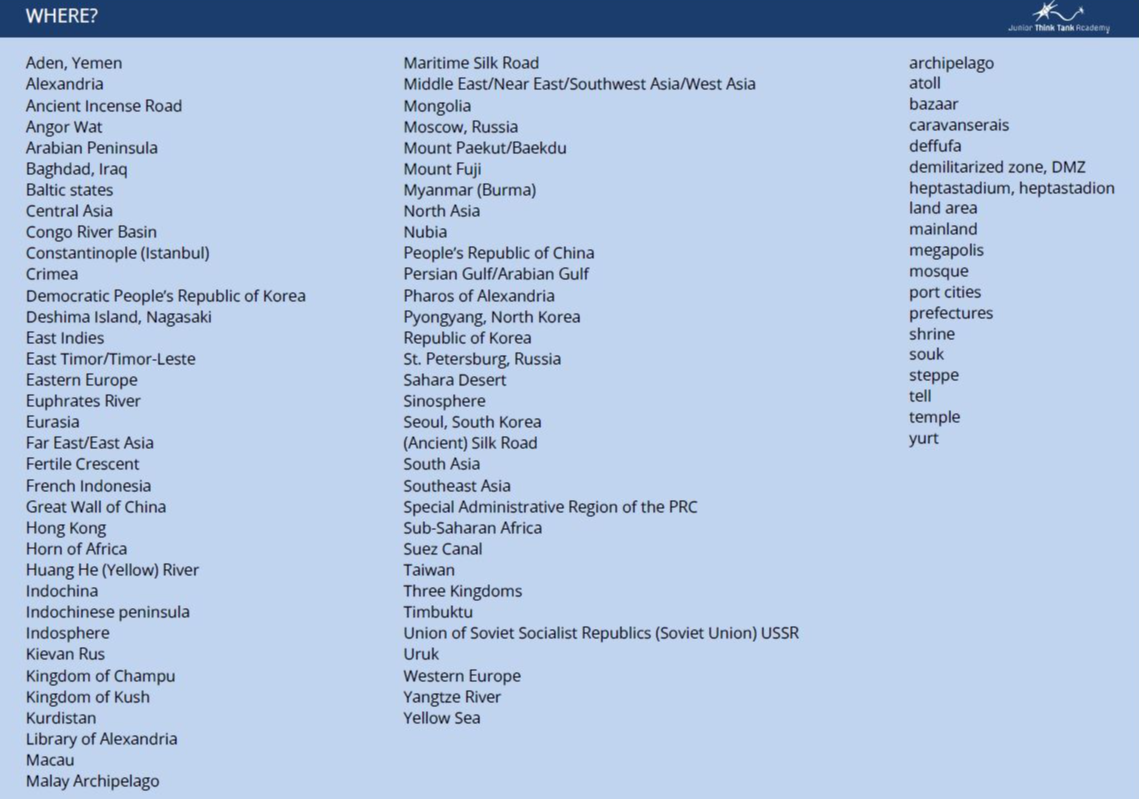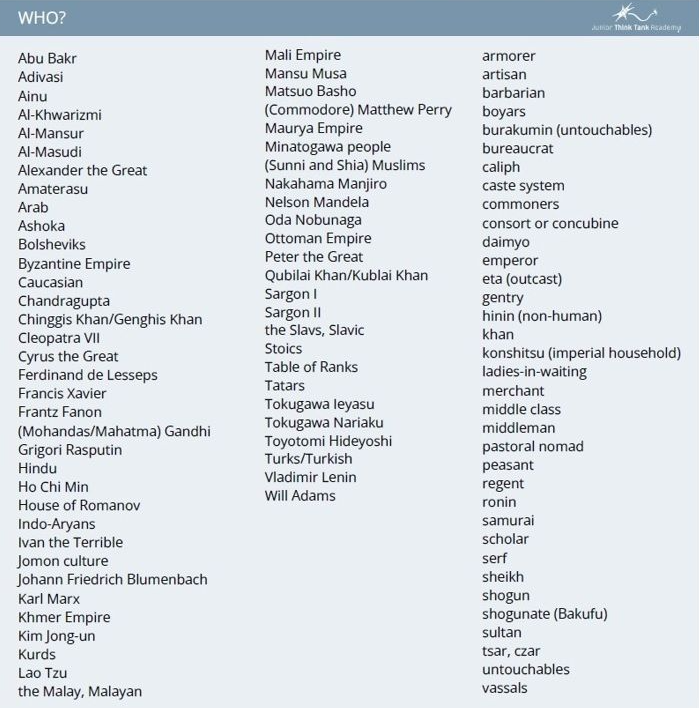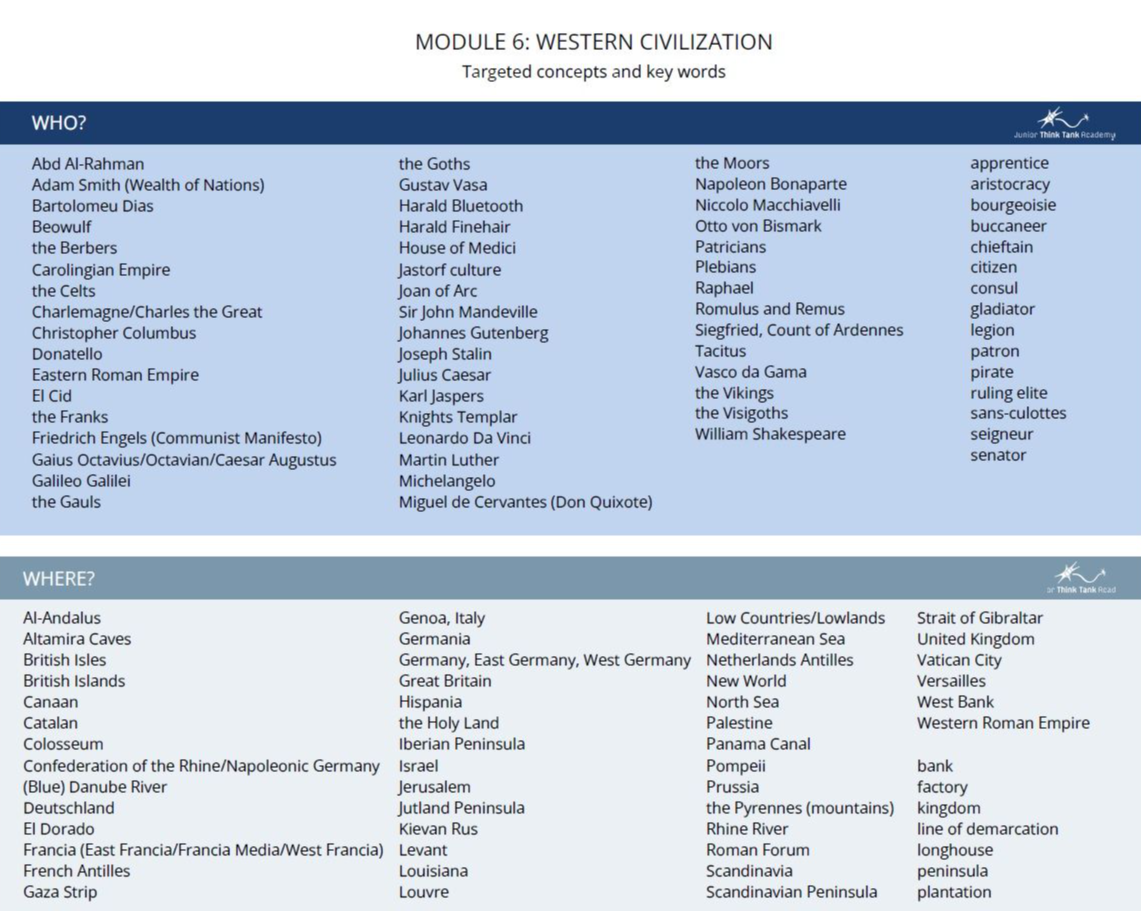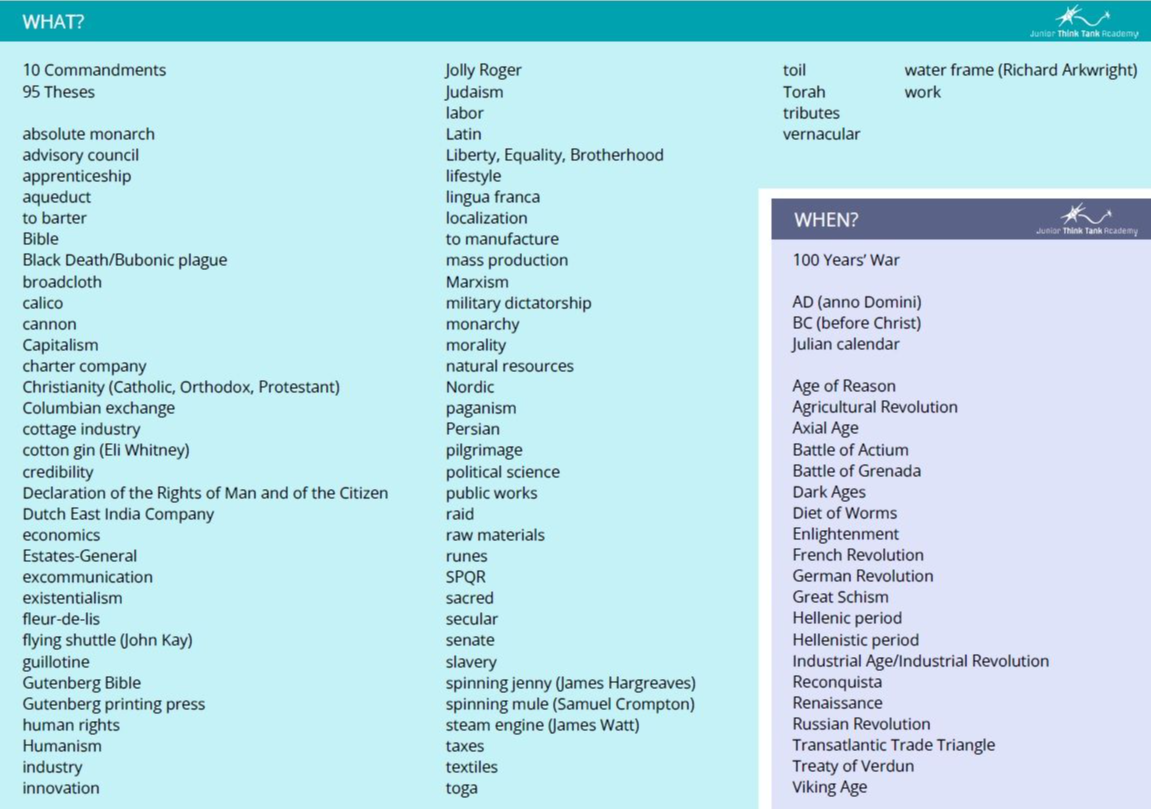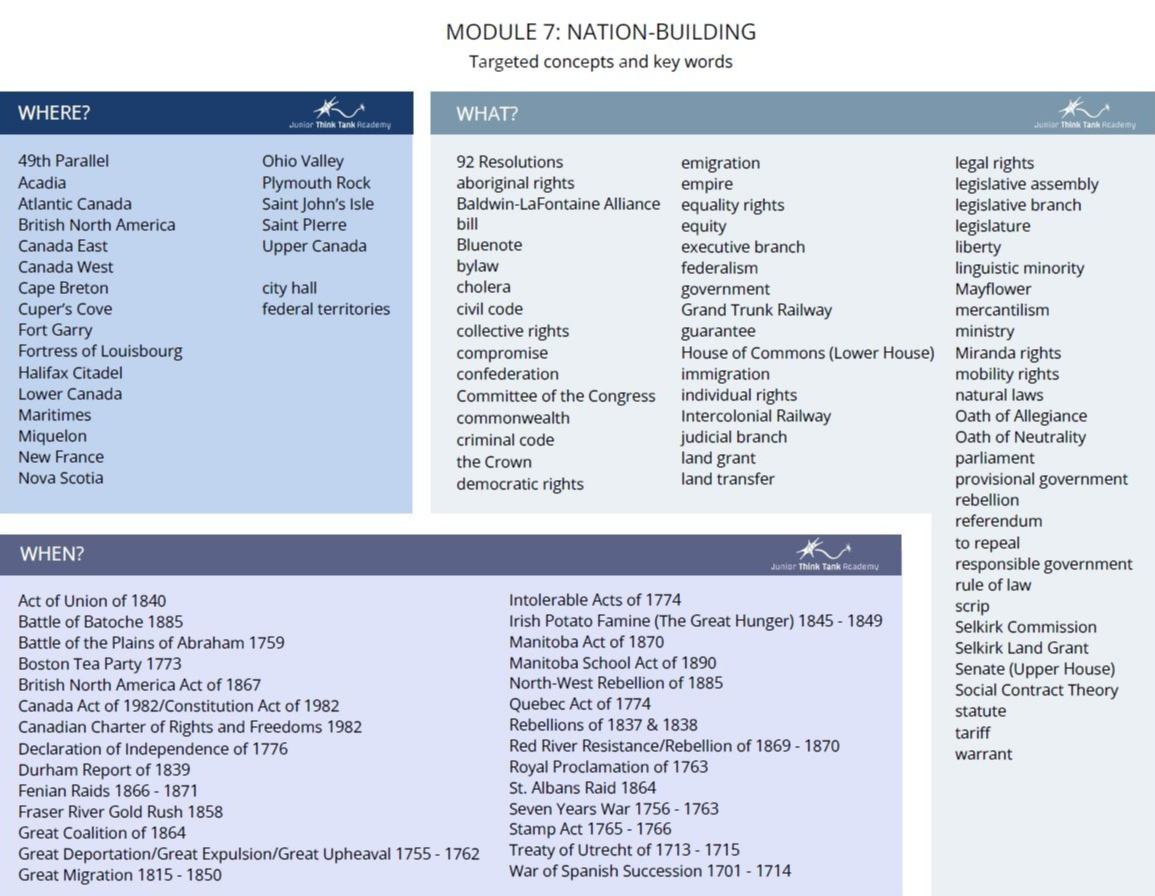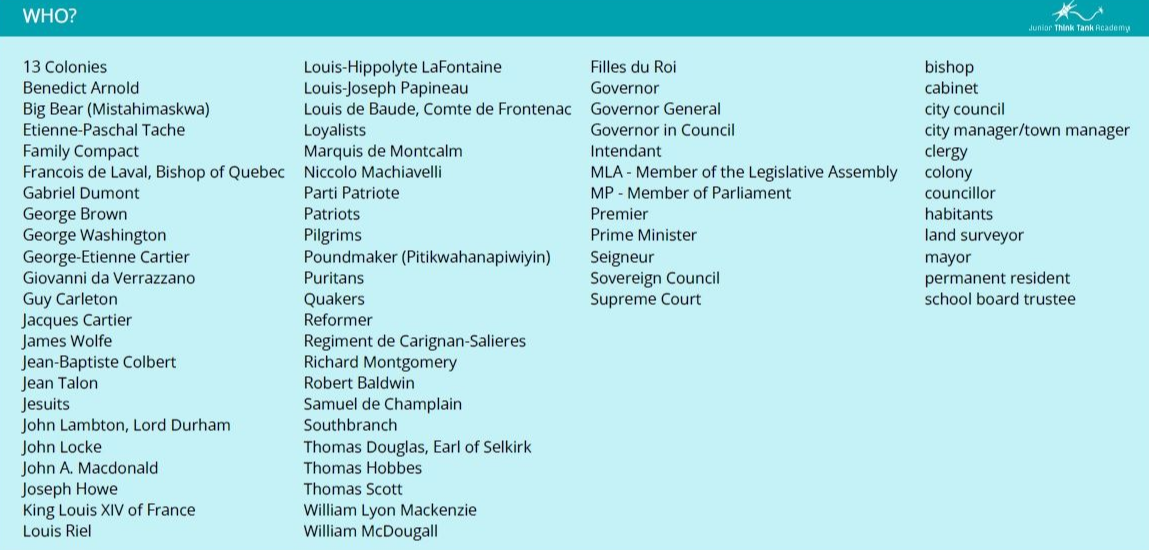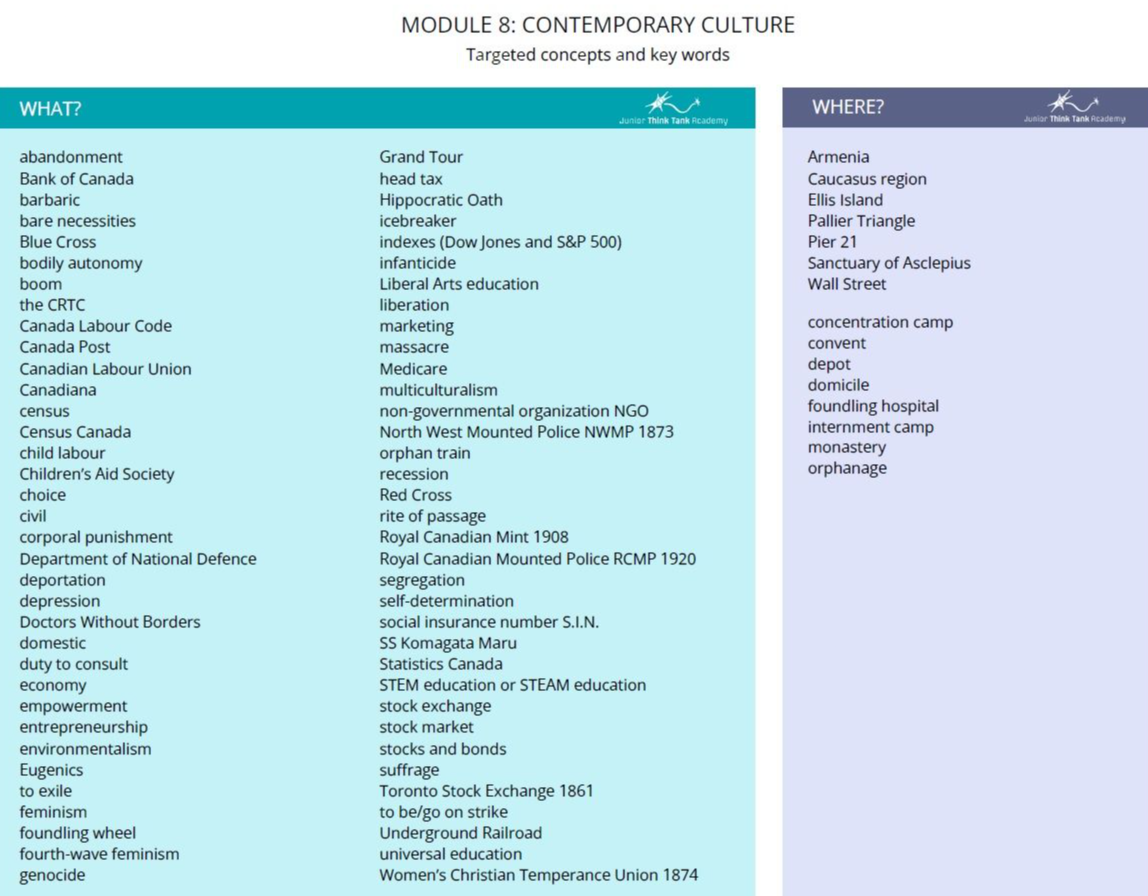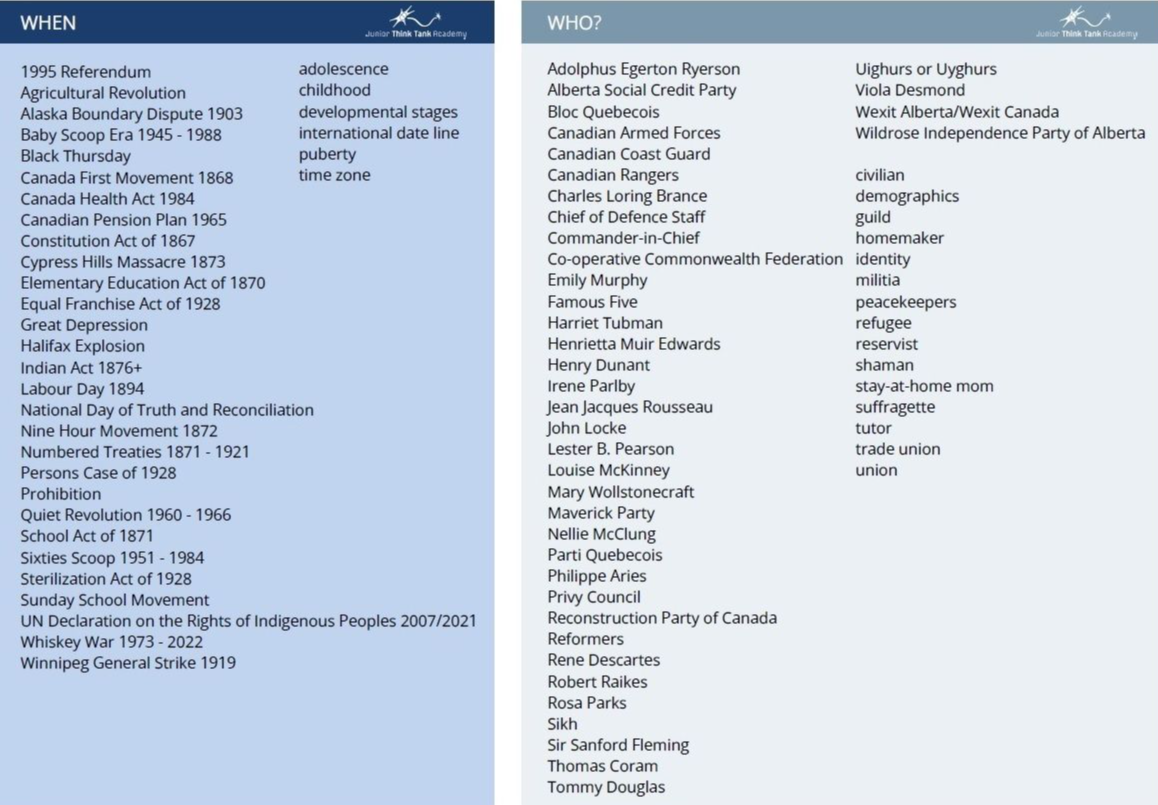FREQUENTLY ASKED QUESTIONS
- What ages and grades are best suited to the Jr. Think Tank program?
- approximate ages 11 - 14
- approximate grades 5 - 9
Parents can take advantage of the two free lessons to gauge whether or not this program is a good fit for their child. Please bear in mind that each lesson is intended to be completed independently with little or no need for constant parental assistance.
Questions for parents to consider:
- Can my child focus on a 10-minute educational video without becoming distracted or completely losing interest?
- What should my child already know about Canada (background knowledge acquired from kindergarten to grade 4)?
Basic geography skills:
- Correctly identify the 7 continents on a world map
- Correctly identify the 5 oceans on a world map
- Correctly locate Canada on a world map
- Correctly locate Ottawa on a map
- Correctly locate hometown on a map
- Understand general geographic features and regions of Canada (e.g. the Arctic, Canadian Shield, Great Lakes, Rocky Mountains, the prairies, the Maritimes, the East)
General knowledge:
- Correctly name the 10 provinces
- Correctly name the 3 territories
- Correctly name the capital city of Canada
- Correctly name the capital city of his/her province
- Correctly name and identify the first Prime Minister of Canada
- Correctly name and identify Canada's current Prime Minister
- Correctly give the date of Confederation (year)
Abilities:
- Can state a personal opinion
- Can answer a WHY question / Can give a plausible reason or brief explanation
- Can answer a HOW question / Can give a plausible reason or brief explanation
2. What level of parental involvement is expected?
Minimal parental involvement. After the first lesson, students should already have a good understanding of what to expect in terms of the pacing and quantity of content contained in each online lesson.
Pacing? too fast, too slow, just right
Quantity of content? too much, too little, or i + 1
3. How much time should be dedicated to Social Studies?
Students should plan to complete at least one interactive lesson per week. An interactive lesson includes a video comprised of a Review, Introduction, Sections 1 - 5, and Summary and activities such as the Quiz and My Journal. Each interactive lesson is quite comprehensive with a lot of information being presented. Students should review lessons prior to taking the end of Module Final Test. The Module Final Test can be taken multiple times to improve one's score.
6 lessons per module completed in 6 weeks
10 lessons per module completed in 10 weeks
12 lessons per module completed in 12 weeks
Each interactive video can be completed in 20-30 minutes.
Each video included in You Choose to Learn More is approximately 2 - 60 minutes long.
Additional 5 minutes for the optional Quiz.
Additional 5 - 10 minutes for the optional My Journal activity.
Additional 20 - 30 minutes for the mandatory Test at the end of each module.
Students are encouraged to complete the interactive lesson in one setting.
Or students can watch interactive video lesson one day and the optional activities on a different day (same week).
4. Can parents trust the information being presented?
Jr. Think Tank has built our program on:
- the latest scholarly findings and best teaching methodologies concerning the academic disciplines that make up the core subject of Social Studies
- various Canadian school textbooks and supplementary materials currently used in the school system for elementary, middle school, junior high, high school, and university
- credible sources which are regularly reviewed for accuracy and validity by government departments, accredited institutions, and reputable organizations
- peer-reviewed scholarly articles from scientific journals and publications
- conflicting interpretations of historical evidence are presented as such - differing opinions from the experts
Families are encouraged to do more research using ERIC or JSTOR search engines. Your local library may give you access to a variety of other search engines for Academic Journals. The general public can also open up a personal account at university libraries.
If you believe that a mistake has occurred or information has been presented inaccurately, please Contact Us. Jr. Think Tank will make changes if deemed appropriate and necessary, and will endeavor to resolve any issues within reason. In extreme cases, cited references will be provided and you will be encouraged to contact the cited sources directly.
5. How often will new content be added?
Program content is regularly reviewed for visual appeal, accuracy, suitability, and appropriateness. Jr. Think Tank conducts ongoing research and adds or refines details as new information becomes available.
6. What documentation is provided by Jr. Think Tank?
Jr. Think Tank provides a Certificate at the end of each module. Parents can choose from either a Certificate of Knowledge or a Certificate of Completion.
Certificates of Knowledge are awarded when the student successfully completes the module final test. The Certificate will include:
If parents would prefer to have a certificate that does not have the student's end of module test score, they can fill out and print a Certificate of Completion after the final test has been completed.
Certificates of Knowledge are awarded when the student successfully completes the module final test. The Certificate will include:
- student's full name (first, last)
- month/day/year module completed
- end of module test score
If parents would prefer to have a certificate that does not have the student's end of module test score, they can fill out and print a Certificate of Completion after the final test has been completed.
7. What are the mandatory activities?
Interactive video lesson
The video lessons feature the latest technological advances in online delivery of educational content. It's exciting for Jr. Think Tank to be part of this new frontier. In each lesson, Ms. Lively (the teacher) shares stories about historical events and achievements. Students have the freedom to navigate through each lesson at their own pace. The traditional worksheet is now an interactive task. The task is not timed or graded, but feedback is provided. Students can do each task multiple times.
The lesson is divided into 5 sections with a key concept being highlighted in each section. As much as possible, multimedia is embedded within the lesson. However, certain copyright restrictions may make it necessary to use a webpage link instead. In such cases, a webpage will automatically pop up and students can watch the video on that link.
Test
Tests are not the same as quizzes. Tests are for Modules. Quizzes are for the individual lessons within a Module. Tests are mandatory while quizzes are optional.
You can find the tests in the last lesson of each Module. The test has 20-30 questions that are randomly generated by the Learning Management System (LMS), and will take 20-30 minutes to complete. Once you have completed the test, your score will be posted onscreen. A passing grade is 50%. You will then be given a chance to review the test to see which questions you got correct/incorrect. Students can take the test multiple times to improve their score.
Parents can decide whether or not to include the test score on the program Certificate. You will receive a copy of your Certificate in your inbox.
The video lessons feature the latest technological advances in online delivery of educational content. It's exciting for Jr. Think Tank to be part of this new frontier. In each lesson, Ms. Lively (the teacher) shares stories about historical events and achievements. Students have the freedom to navigate through each lesson at their own pace. The traditional worksheet is now an interactive task. The task is not timed or graded, but feedback is provided. Students can do each task multiple times.
The lesson is divided into 5 sections with a key concept being highlighted in each section. As much as possible, multimedia is embedded within the lesson. However, certain copyright restrictions may make it necessary to use a webpage link instead. In such cases, a webpage will automatically pop up and students can watch the video on that link.
Test
Tests are not the same as quizzes. Tests are for Modules. Quizzes are for the individual lessons within a Module. Tests are mandatory while quizzes are optional.
You can find the tests in the last lesson of each Module. The test has 20-30 questions that are randomly generated by the Learning Management System (LMS), and will take 20-30 minutes to complete. Once you have completed the test, your score will be posted onscreen. A passing grade is 50%. You will then be given a chance to review the test to see which questions you got correct/incorrect. Students can take the test multiple times to improve their score.
Parents can decide whether or not to include the test score on the program Certificate. You will receive a copy of your Certificate in your inbox.
8. What are the optional activities?
Quiz
The quiz is solely an assessment tool. It is comprised of 3 - 5 short questions and takes up to 5 minutes to complete. The following formats are used:
My Journal
The journal is an opportunity for students to reflect on the lesson. Suggested writing prompts are provided, but students should feel free to write about any topic related to the lesson. They can write as much or as little as they would like. Once the student submits their journal, a copy will be sent to their Jr. Think Tank inbox for parents to read and print out. Jr. Think Tank will do an authentic assessment of the submitted journal entry.
For parents who want to score the journal entries, 2 different types of Writing Rubrics are provided. Parents can choose which Writing Rubric they prefer and use the form as a guide to assess their child's My Journal response. Writing Rubrics are only available with a paid registration.
The quiz is solely an assessment tool. It is comprised of 3 - 5 short questions and takes up to 5 minutes to complete. The following formats are used:
- true-false
- multiple choice
- word bank
- matching
- sequencing
- fill-in-the-blank (spelling)
My Journal
The journal is an opportunity for students to reflect on the lesson. Suggested writing prompts are provided, but students should feel free to write about any topic related to the lesson. They can write as much or as little as they would like. Once the student submits their journal, a copy will be sent to their Jr. Think Tank inbox for parents to read and print out. Jr. Think Tank will do an authentic assessment of the submitted journal entry.
For parents who want to score the journal entries, 2 different types of Writing Rubrics are provided. Parents can choose which Writing Rubric they prefer and use the form as a guide to assess their child's My Journal response. Writing Rubrics are only available with a paid registration.
9. What additional student learning aids are included with a paid registration?
Vocabulary List
Each module has an accompanying vocabulary list that includes all the targeted concepts and key words. The list is available to download and print out on the course player.
Watch video about "Vocabulary Instruction Through Critical Thinking."
Each module has an accompanying vocabulary list that includes all the targeted concepts and key words. The list is available to download and print out on the course player.
Watch video about "Vocabulary Instruction Through Critical Thinking."
- To improve retention, students can use the vocabulary list to take notes as well as to focus their attention while watching the interactive video lessons.
- Parents should encourage their child to use the Vocabulary List + notes when answering the My Journal prompts.
- Parents may also permit their child to use the Vocabulary List + notes when taking the Quizzes and Tests.
Videos
Specially curated materials targeted for ages 10-14, which are suggested for use in Canadian classrooms. Videos focusing on identity with regards to sexuality and racial equity are NOT part of our course.
The curated materials are separated into two categories:
Category #1 - Select videos are embedded within the interactive video lessons. These videos are newscasts, documentaries, or docudramas reenacting historical events in Canadian history. Although they are considered by the government to be appropriate for classroom use, parents are strongly advised to prescreen the videos prior to having their children watch them because certain videos contain descriptions and images of historical events that some may find disturbing.
Category #2 - On the student course player is a Module Video Extras playlist. The playlist has videos which present an alternative point of view and/or a distinct Canadian perspective with the aim of building bridges as well as self-confidence. Although they are considered by the government to be appropriate for classroom use, parents are strongly advised to prescreen the videos prior to having their children watch them because certain videos include strong language, off-color comments, and mature topics.
Writing Rubrics
See #8 of FAQs - My Journal
